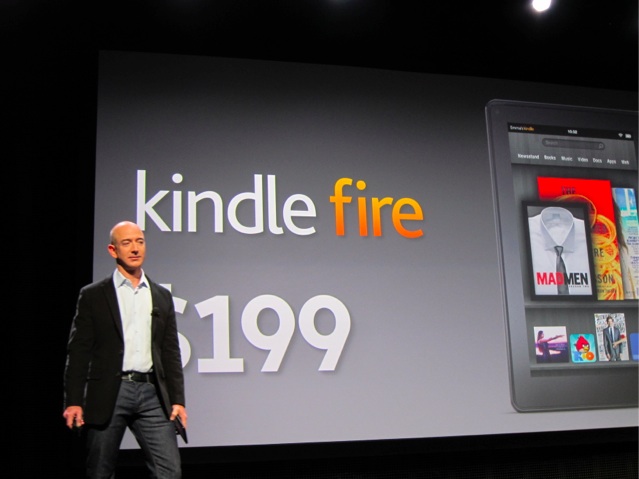For all we do not know about the new Amazon phone, we do know one thing for sure: It’s from Amazon. Based on the company’s track record, we can make some educated guesses about what’s in store and how Amazon’s rumored smartphone may impact app development.
Just as Google is an advertising company posing as a search company, the launch of Amazon’s phone means Amazon is truly becoming a commerce company posing as a hardware company. Amazon’s commerce focus will determine the kinds of apps we can expect to run on this new phone.
Amazon’s overarching goal is to sell goods via the digisphere. They’ve done so masterfully online, and they expect to replicate and grow this success on mobile. Amazon’s Kindle Fire tablet has been a success because it is an affordable, narrowly-focused, and well-functioning device. They can afford to price the device low, even at a loss, because the device is not the issue — selling other goods is the objective. Amazon is certainly setting customer acquisition budgets based on a sophisticated calculation of lifetime value of the customer. These budgets enable them to justify making the devices affordable, even free.
As for the specifics, there has been little word so far from Amazon on the nature of this phone. Similar to the Kindle Fire, it’s likely to be an Android device — the vanilla option — with the Google Play store disabled and the various Amazon shopping options pre-loaded, including Amazon Appstore, Amazon MP3 Store, Amazon Instant Video, and so on.
The puzzle is what deal-making has gone on between Amazon and the carriers. Will major wireless operators in the US and elsewhere re-sell the Amazon phone? Probably. What was the power-brokering that went on behind closed doors to cross-incentivize? Is Amazon giving up commerce revenues to the carriers to gain distribution? That seems likely, because it’s tough to see what other benefits carriers will get from a store-within-a-phone.
What does the Amazon phone have to do with apps? Well, apps are just a product line in Amazon’s commerce world. While they have an app store for Kindle Fire, it’s primarily their way of controlling the content, avoiding the Google Play store, and keeping the
focus on those items Amazon wants most to sell such as movies, music and e-books.
Will Amazon take further steps down the commerce path, to enable transactions related to bricks-and-mortar stores? Could this device become phone-as-a-credit-card, not just phone-as-a-store? Not only would this be a groundbreaking move by Amazon, but also a logical extension of Amazon’s focus on commerce.
The bottom line is this: Amazon’s new phone will likely be a loss leader for them, provide good value to users, be designed to sell goods, and support a curated collection of apps intended to provide revenues to Amazon, or at minimum, to avoid distracting us users from the business of buying Amazon’s growing family of physical and virtual goods.
David Schoenbach is Vice President of Product Management at Exadel, a mobile development company serving the software needs of customers including Bank of America, HP, Sears, eBay, TimeWarner Cable, UBS, AT&T, and many others. He heads Tiggzi, a platform for mobile app development, offering a Cloud-based mobile app builder that makes it easy for developers to integrate web APIs.
Photo: Devindra Hardawar/VentureBeat


